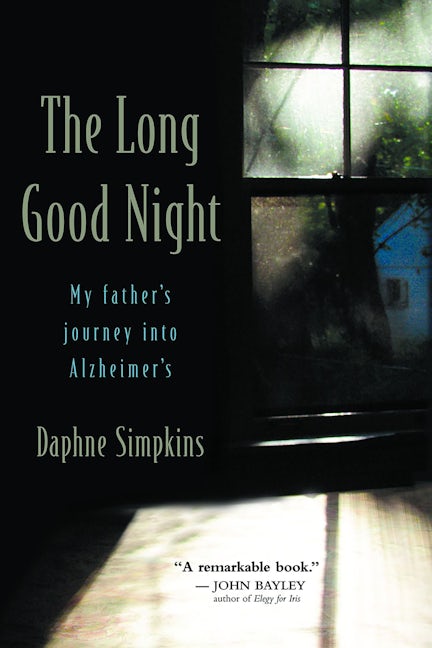Daphne Simpkins
The Long Good Night
The Long Good Night
Couldn't load pickup availability
As Simpkins writes about what she calls her father's "disappearing act," she illuminates the tremendous toll that this disease takes. "Alzheimer's doesn't happen to one person," she explains. "It claims the community of people who love the person with the disease. The care is constant, the demands profound." But her book is far more than a recounting of the long journey into the deep night of the disease. It is a loving memoir of a good father and a good man. It is a powerful portrait of a close family whose bonds are strained but ultimately strengthened by the challenge of caring for him. And, perhaps most surprisingly, it is a remarkably uplifting account of that experience.
The grief in the tale that Simpkins tells is balanced by love, faith, hope and humor. The humor arises naturally, almost miraculously, out of the stories Simpkins tells, a series of vignettes about her family's daily life. Alzheimer's is admittedly a dark subject, but Simpkins brings as much natural light and levity to it as circumstances allow.
"The Long Good Night" is "a memoir about love rather than an elegy about a disease," Simpkins says. It will give caregivers cause for honest hope, and its many other readers a wonderfully nuanced story of love and laughter amid the ruins of illness a story that both illuminates the tragedy of Alzheimer's and powerfully transcends it.
Share


